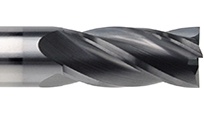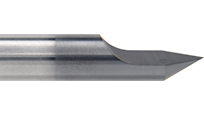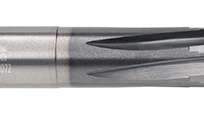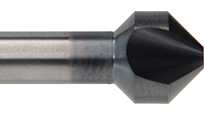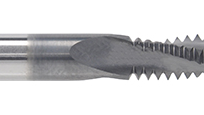Is carbide tougher than HSS?
Perfect for Slotting and High-Speed Cutting
End Mill - Drill - Reamer
We are proud to offer the products listed in our catalogue. To help our customers experience first-hand the quality and reliability of our tools, we invite you to review our catalogue and request samples. This initiative reflects our confidence in the superior performance of our products and our commitment to customer satisfaction.
Yes, carbide is generally tougher and harder than HSS (High-Speed Steel), making it better suited for certain machining applications. Here's a comparison of both materials:
Carbide (Solid Carbide)
- Hardness: Carbide is much harder, often reaching HRC 70 or higher.
- Toughness: Although carbide is harder, it is brittler than HSS, meaning it can break or chip under sudden impacts or if not handled carefully.
- Wear Resistance: Carbide has superior wear resistance, allowing it to maintain its sharpness longer, especially in high-speed cutting applications.
- Applications: Ideal for machining harder materials like steel, titanium, and high-temperature alloys, as well as for precision cuts.
HSS (High-Speed Steel)
- Hardness: HSS is softer, typically around HRC 60, but can still handle higher temperatures than carbon steel.
- Toughness: HSS is more tough and resistant to chipping or breaking under heavy loads compared to carbide. It's less prone to fracturing under impact.
- Wear Resistance: HSS wears more quickly than carbide, requiring frequent sharpening in heavy-duty cutting tasks.
- Applications: HSS is commonly used for general machining, drill bits, and taps, and it's more suited to lower-speed cutting tasks or materials that are not as hard.
At Industrial-Tools, we provide the finest CNC tools available to help you streamline your production and achieve flawless results every time.
Browse our extensive selection of CNC tools today and get the best quality tools for your machining needs.
Contact us for more information on our products and how they can benefit your business.
